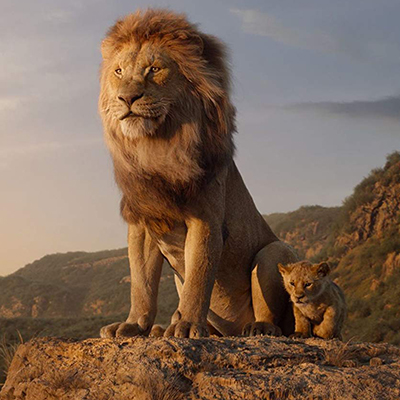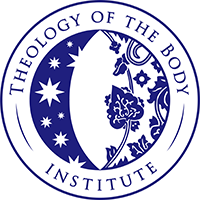

The Lion King: Masculine Identity and Fatherhood
The Lion King: Masculine Identity and Fatherhood

I was 8 years old and it was the first time I had ever been to the movies. I still remember the wonder, emotion and excitement of watching The Lion King on the big screen. 25 years later, similar feelings were rekindled with the recent remake of this film. While the remake didn’t quite reach the emotional peaks of the original, the cinematography is incredible and it stays true to the key themes and messages. One such theme that permeates the original film and is further highlighted in the remake is that of masculine identity.
Of all the movies I have seen, The Lion King has one of the best examples of a father figure. While many fathers in film are portrayed as being ignorant, absent, incompetent, abusive, fearful or unloving, the character of Mufasa offers a beautiful example of a just, wise, virtuous and loving father. What’s more, in this film we notice an explicit link between masculine identity and fatherhood.
From a very young age Simba wants to be like his dad and looks up to him both as a father and king. One of the most striking scenes in the film highlights this dynamic. After Simba disobeys his father while trying to prove his bravery, Mufasa takes Simba aside and educates him on what it truly means to be brave. As Mufasa reprimands Simba for his disobedience, he doesn’t withdraw his love, but rather turns the moment into a teaching and bonding opportunity. Mufasa draws Simba’s attention to the stars, explaining how his own father had taught him that the stars represent all the kings of the past looking down upon them, ready to guide them in their earthly journey, and that one day he too will be there to guide Simba. This moment of fatherly love also shows a spiritual maturity and leadership that all fathers are called to for the sake of their family.
Simba’s journey in masculinity is significantly influenced by the heroic and wise example that Mufasa sets for him as father and king. Earlier, Mufasa teaches his son what virtue and genuine self-sacrifice look like; “while others search for what they can take, a true king searches for what he can give.” The lesson doesn’t end there as we see this self-sacrificial love in action in the most famous scene of the movie where Mufasa saves Simba’s life at the expense of his own.
In the wake of Mufasa’s death we see that Simba quickly loses his own sense of identity. After running away from the kingdom at the advice of his evil uncle Scar, he is saved by the comic duo, Timon and Pumbaa. The pair establish themselves as new father figures for the lion cub and proceed to give Simba some terrible advice: “when the world turns its back on you, you turn your back on the world.” This is when we’re introduced to those famous words “Hakuna Matata (no worries).”
Timon and Pumbaa’s way of life highlights a mentality that forms part of the crisis of masculinity in our world: forget your problems, just enjoy yourself and live the “great life” with “no rules and no responsibilities.” “Hakuna Matata” is so appealing precisely for this reason; it’s fun, easy and comes with no strings attached. In direct contrast to the lessons Mufasa tried to ingrain in his son, Timon declares that “life is meaningless.” Indeed it is when we adopt this “problem-free philosophy.”
As Simba is ushered into his new way of life, his diet change from meat to grubs acts as a symbol of what happens to him as a man; he forgets who he is and starts to live as someone less than who he is called to be. We can see this in our own lives when we choose to forgo responsibility for the “care-free” lifestyle. We forget the greatness we are called to and settle for a life of mediocrity.
In a later scene it becomes obvious that Timon and Pumbaa’s way of life is underpinned by a materialist philosophy. As the trio reflect on the stars together, Simba shares what his father once taught him about the great kings of the past. His friends ridicule the idea, refusing the call to look beyond their physical nature. Simba, however, begins once more to see through to the spiritual reality his father revealed to him, and as his memory of his father is stirred up, so is his sense of his true identity and calling.
Simba, through the guidance of his father’s old friend Rafiki, is lead to a place where he has an experience of his father, Mufasa, speaking to him. Mufasa, recognising Simba’s condition, says to Simba “you have forgotten who you are, therefore, you have forgotten me.” Mufasa implores Simba, “Remember who you are,” and calls him out of himself to become the man he was destined to be: the one true king. Simba is reminded powerfully of his own identity by reference to himself as the “son” and “rightful king.” This point is emphasized when Rafiki asks Simba, “Who are you?” Simba’s initial response is “I’m nobody”.
However, following the exchange between Mufasa and Simba, the remake adds new dialogue where Rafiki poses the question to Simba again, who now replies “I am Simba, son of Mufasa.” This moment hits Simba at his core. His father has stirred something hidden deep inside him, which is common to every man: the desire to be great, to give of oneself and fulfil one’s call. From there, Simba embarks on the journey back to his homeland to reclaim his identity as son of Mufasa and rightful king.
Embracing his call to greatness means Simba must abandon the “problem-free” life in order to face his past, fight for his kingdom and take on the mantle of leadership. In returning to challenge his evil uncle Scar, Simba follows the example of self-sacrifice his father gave him. All is not lost with Timon and Pumbaa, either; they decide to follow Simba and fight at his side. That is what the witness of true masculinity does: it calls forth other men to embrace their call to greatness.
Don’t we all have a desire for greatness? To live and die for something much bigger than ourselves? Simba realized this by reclaiming his identity as the son of his father. He gives the rest of us the key to do the same. We need to reclaim our identity as sons of God the Father and open our ears to hear God’s call when He says to each man made in His image and likeness: “Remember who you are.”
Continue the conversation on this article’s Facebook and Twitter posts.
Tomasz Juszczak is married with two children and is Director of the Office of Youth Evangelization in the Archdiocese of Hobart, Australia. He was introduced to the Theology of the Body at World Youth Day 2008 in his home city of Sydney, where he heard Christopher West speak for the first time. He has had a passion for the TOB since then, attending seminars with Christopher West and Bill Donaghy and more recently completing the TOB1: Head and Heart Immersion Course.



